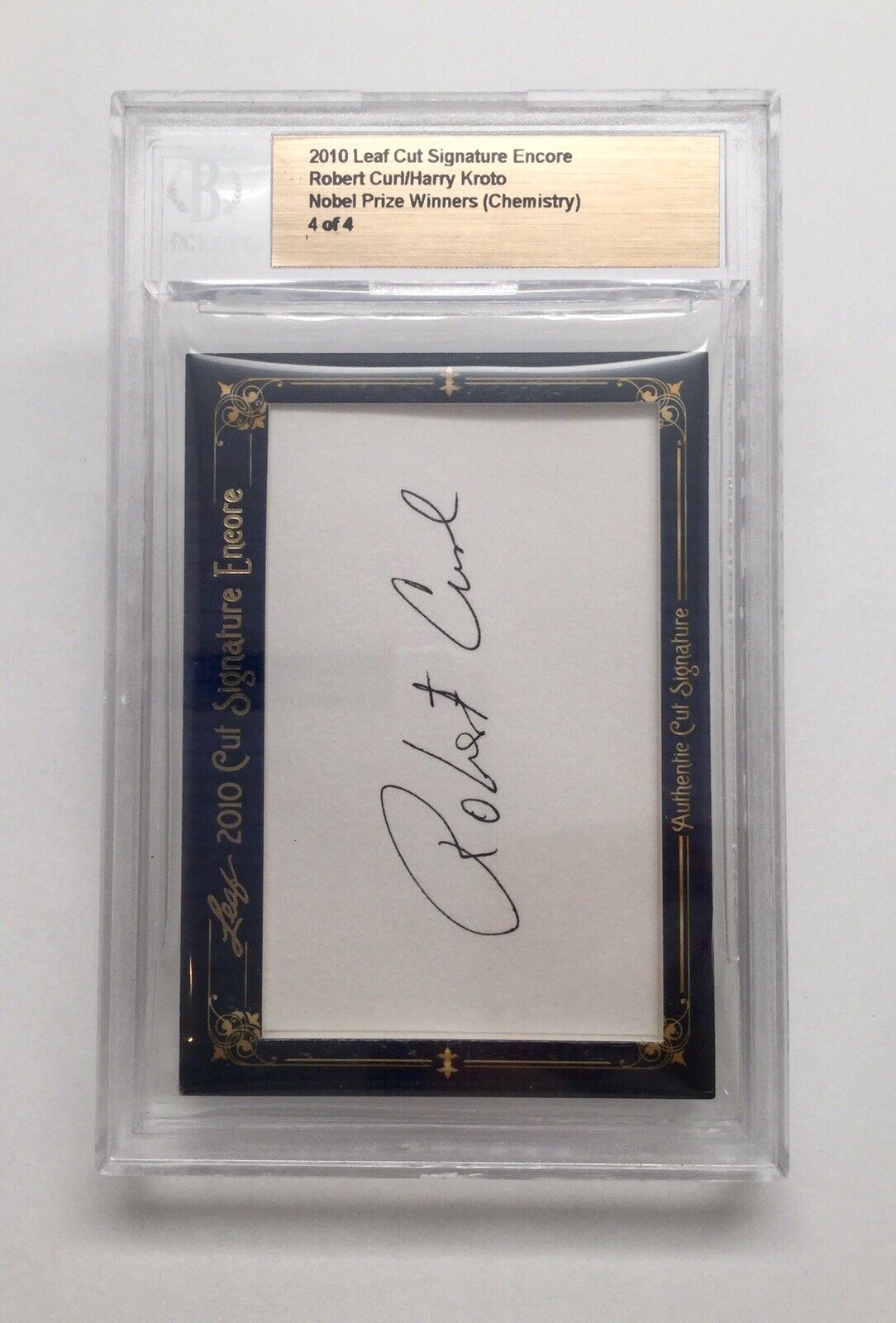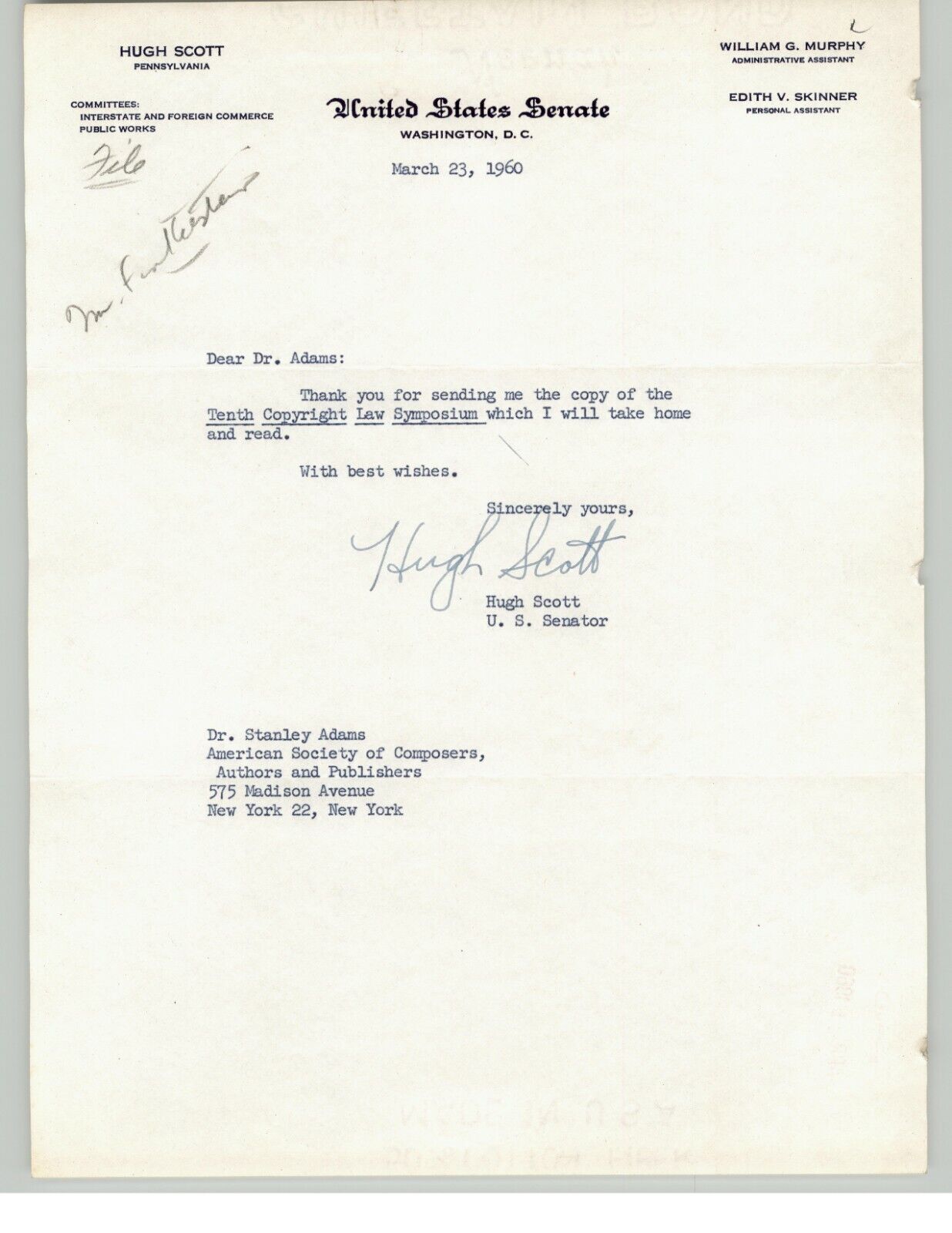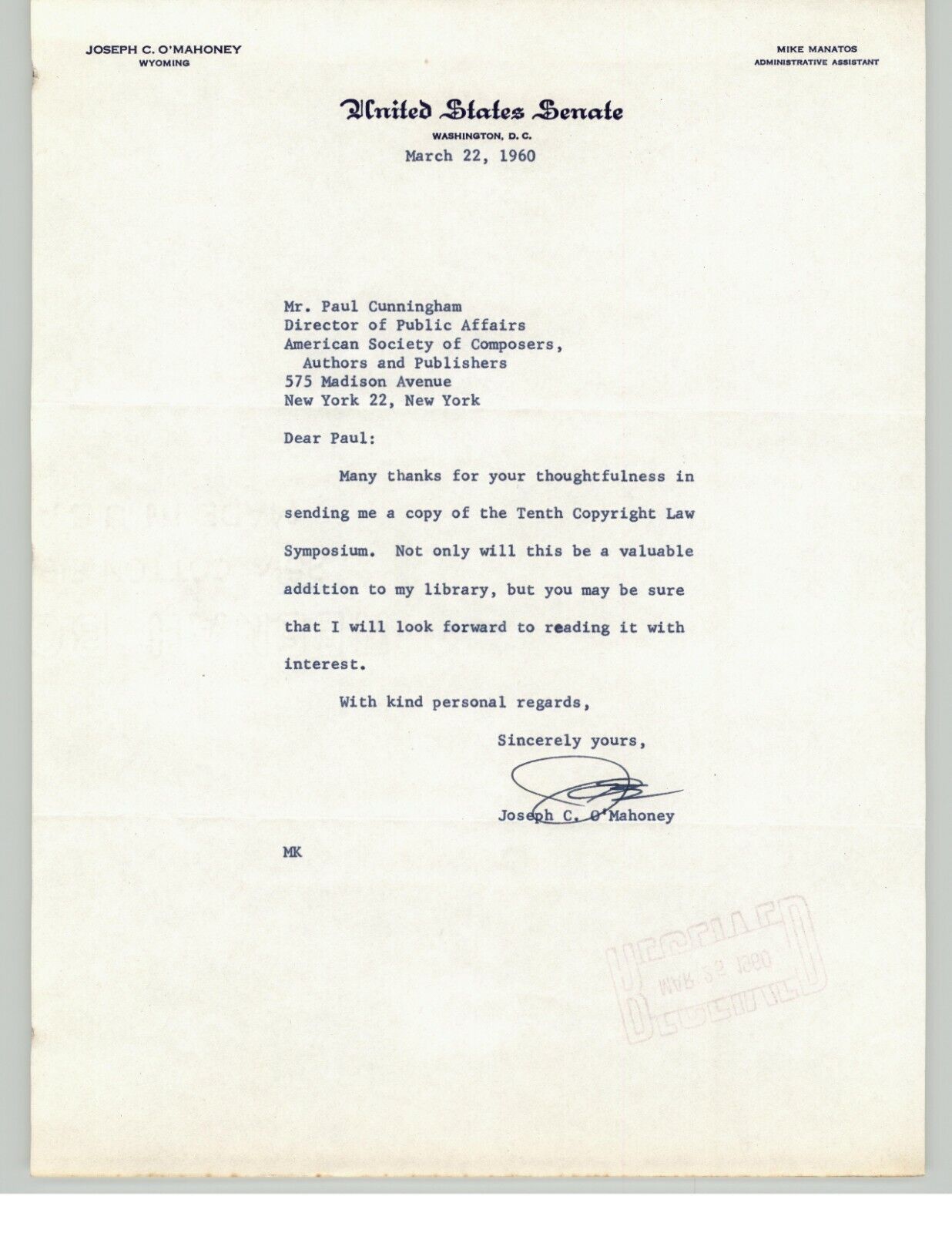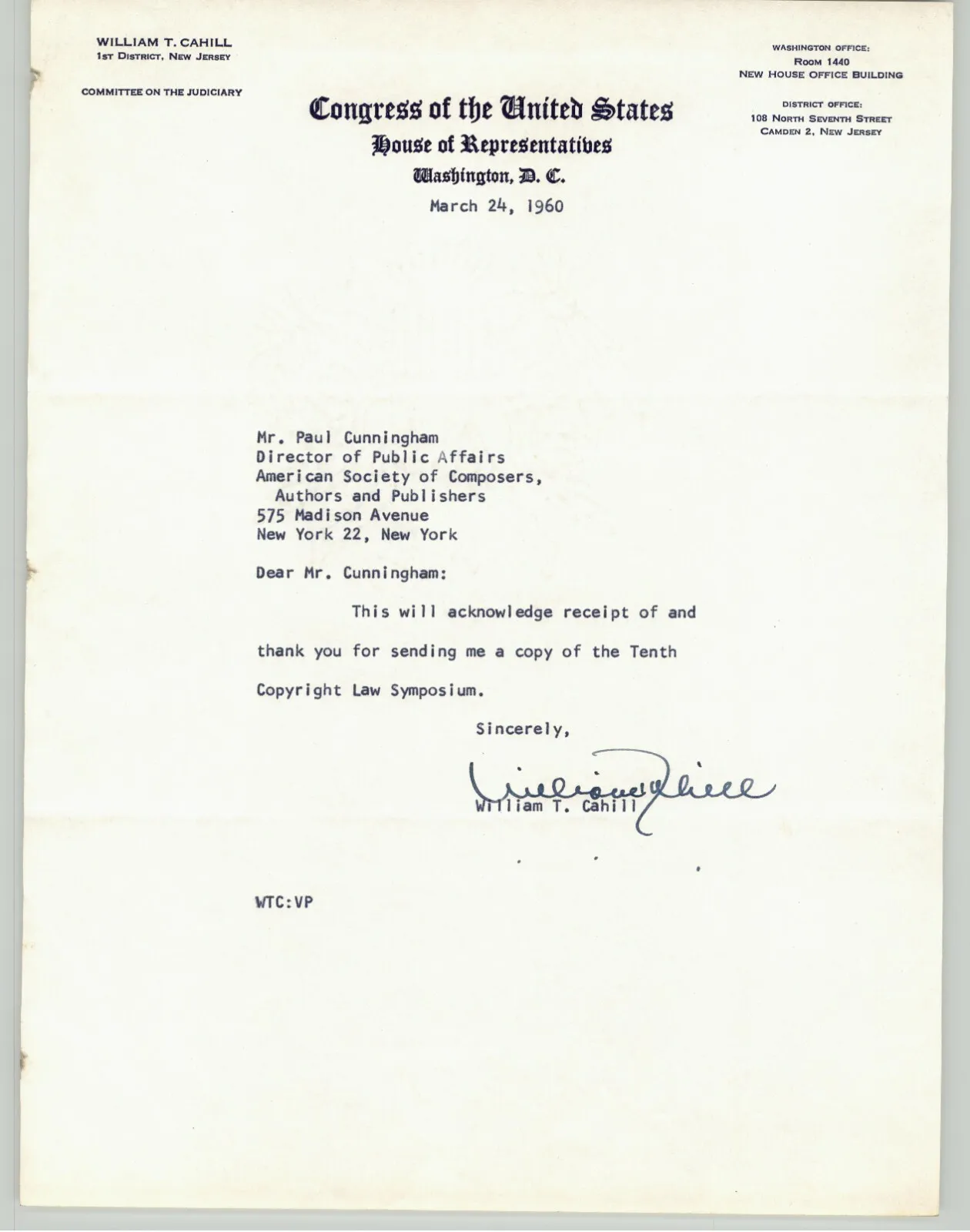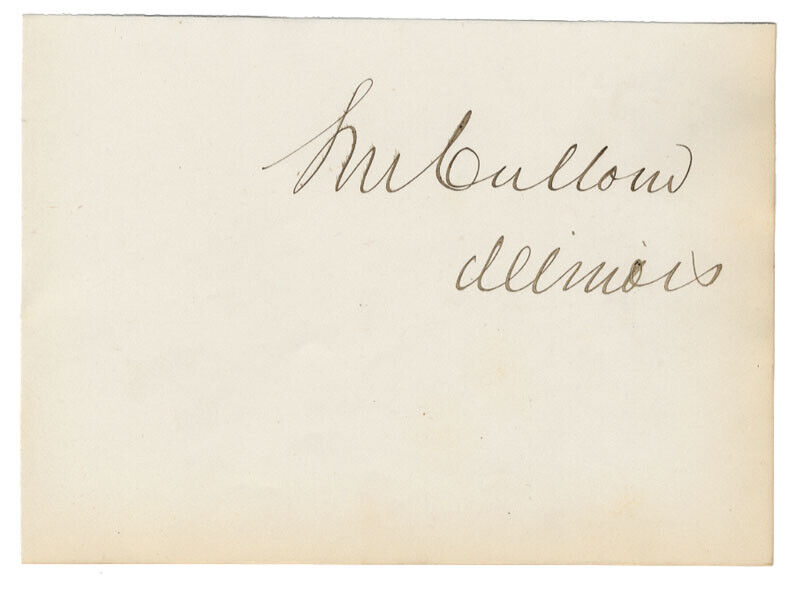-40%
FERNANDO WOOD 1855 Autograph/Signed Check - New York City, NY Mayor/Congressman
$ 34.32
- Description
- Size Guide
Description
This is an early check for streets paving to the Treasurer of the City of New York, Mechanics' Bank. It is signed by then mayor of New York City, Fernando Wood.SIZE:
About 7.25" x 3.5"
DATE:
Issued in 1855
CONDITION:
Generally clean with some wear including a small edge tear at the top-center.
GUARANTEED ORIGINAL - NO REPRODUCTIONS!
SEE OUR OTHER ITEMS!
See our
OTHER AUTOGRAPHS
.
See our
OTHER BANK CHECKS
.
From Wikipedia on Fernando Wood:
Fernando Wood
(June 14, 1812 – February 14, 1881) was an American politician of the Democratic Party and the 73rd and 75th mayor of New York City; he also served as a United States Representative (1841–1843, 1863–1865, and 1867–1881) and as Chairman of the Committee on Ways and Means in both the 45th and 46th Congress (1877–1881).
A successful shipping merchant who became Grand Sachem of the political machine known as Tammany Hall, Wood first served in Congress in 1841. In 1854 he was elected Mayor of New York City. Reelected in 1860 after an electoral loss in 1857 by a narrow majority of 3,000 votes, Wood evinced support for the Confederate States during the American Civil War, suggesting to the New York City Council that New York City secede from the U.S. and declare itself a free city in order to continue its profitable cotton trade with the Confederacy. Wood's Democratic machine was concerned with maintaining the revenues (which depended on Southern cotton) that fed the system of patronage.
Following his service as mayor, Wood returned to the United States Congress. He was one of the main opponents of the Thirteenth Amendment.
Wood, the son of Benjamin and Rebecca (Lehman) Wood, and brother of United States Congressman Benjamin Wood was born in Philadelphia, Pennsylvania. His Spanish forename was chosen by his mother, who found it in an English gothic novel written by George Walker, The Three Spaniards (London, 1800). His parents were Quakers. The family moved to New York in 1821, where his father opened a tobacconist store that failed. Shortly after, his father died. Wood left school at age 13 and unsuccessfully attempted many occupations throughout the eastern states. In the 1830s he attempted several failed businesses in Manhattan. He first opened a wine and tobacco store which made little profit. He then opened a ship chandler firm in 1835 which failed during the Panic of 1837. Finally, he opened a grocery and bar in 1838 which he was forced to close in 1840 because business was so poor. At the age of 24, Wood became a member of the Tammany Society and was chairman of the chief young men's political organization in 1839. He helped to resolve the inner dispute between the Loco-Focos and the conservative members of Tammany, won approval of the Hall, which awarded him nomination as a candidate to U.S. Congress, which he won in election. He lost a subsequent election for U.S. Congress and, afterward, reestablished his ship chandler business in the mid-1840s. This business became successful and Wood gained additional wealth in a real estate deal in 1848. William Tweed said of Wood, "I never yet went to get a corner lot that I didn't find Wood had got in ahead of me." During the early years of the California Gold Rush, Wood and four other partners chartered a ship, the John C. Cater, with goods and equipment to San Francisco. It appeared as though the goods were sold at a profit. It was later discovered that Wood obtained start-up capital from his brother-in-law, Edward E. Marvine, via a fraudelent letter from California, and that Wood falsified many of the documents. Marvine alleged that Wood cheated the investors of ,000. Wood was indicted by a grand jury, but the case was not initially brought to trial because the court found that the statute of limitations expired a day before the court was to rule on the matter. Eventually, the New York Supreme Court ordered Wood to pay Marvine ,000.
In late 1854 Wood was elected mayor of New York City. The state legislature created the New York Municipal Police in 1845. At the beginning of his first term, Wood used the press to show that he was making efforts to continue the fight of his predecessor Mayor Jacob A. Westervelt against the massive corruption of the force. However, Wood ensured the police force was responsive to his needs, and convinced commissioners to allow him to fire officers not performing their duties. He was then accused of only hiring Democrats to replace those fired officers. He was re-elected to a two-year term in 1856. On election day, he gave his police forces time off to vote, and during that time an affiliated gang, the Dead Rabbits, protected the polling places from unwanted voters. Wood was denied a third successive term in 1857 by a narrow majority of 3,000 votes. He garnered bad press involving a scandal with his brother, Tammany did not support him, his police forces were battling the Metropolitan police forces, and the Dead Rabbits were battling the Bowery Boys.
In the 1856-57 session, Republicans in control of the New York State Legislature at Albany shortened Wood's second term of office from two years to one and created a Metropolitan Police Force, with Frederick A. Tallmadge as superintendent, to replace Wood's corrupt Municipal Police. Tallmadge demanded for Wood to disband the Municipal Police, but Wood refused, even in the face of a May 1857 decision by the Supreme Court. Superintendent George Washington Matsell, 15 captains and 800 patrolmen of the Municipal Police backed Wood.
Captain George W. Walling pledged his loyalty to the new Metropolitan Police and was ordered to arrest Wood. Wood refused to submit, and when Captain Walling attempted to use force, New York City Hall was occupied by 300 municipal policemen, who promptly tossed Captain Walling into the street. Fifty Metropolitans in frock coats and plug hats then marched on City Hall with night sticks in hand. The Municipals swarmed out and subsequently routed the Metropolitans. Fifty-two policemen were injured in what became known as the Great Police Riot.
The Metropolitan Police Board called out the National Guard, and the Seventh Regiment surrounded City Hall. A platoon of infantry with fixed bayonets marched into City Hall and surrounded Mayor Wood who then submitted to arrest. Mayor Wood was charged with inciting to riot, released on nominal bail and returned to his office. The feud continued on through the summer of 1857, with constant confrontations between the rival police forces. When a Municipal arrested a criminal, a Metropolitan would come along and release him. At the police station, an arresting officer would find an alderman and a magistrate from the opposing side waiting. A hearing would be held on the spot and the prisoner released on his own recognizance.
The gangs of New York had a field day. Pedestrians were mugged in broad daylight on Broadway while rival policemen clubbed each other to determine who had the right to interfere. Soon the gangs were looting and plundering without interference, but turned on one another in turf wars, which culminated in the Fourth of July gang battle. The Dead Rabbits and several other Five Points gangs marched into the Bowery to do battle with the Bowery Boys and to loot stores. They attacked a Bowery Boys headquarters with pistols, knives, clubs, iron bars and huge paving blocks, routing the defenders. The Bowery Boys and their allies, the Atlantic Guards, poured into Bayard Street to engage in the most desperate and largest free-for-all in the city's history. The Metropolitans attempted to stop the fighting but were severely beaten and retreated. The Municipals said the battle looked like a Metropolitan problem and was none of their business.
Fernando Wood served a third mayoral term in 1860–1862. Wood was one of many New York Democrats sympathetic to the Confederacy, called 'Copperheads' by the staunch Unionists. In 1860, at a meeting to choose New York's delegates to the Democratic convention in Charleston, S.C., Wood outlined his case against the abolitionist cause and the "Black Republicans" who supported it. He was of the opinion that "until we have provided and cared for the oppressed laboring man in our own midst, we should not extend our sympathy to the laboring men of other States." During his second mayoral term in January 1861, Wood suggested to the New York City Council that New York secede and declare itself a free city in order to continue its profitable cotton trade with the Confederacy.
Wood's Democratic machine was concerned to maintain the revenues (which depended on Southern cotton) that maintained the patronage. Wood's suggestion was greeted with derision by the Common Council. Tammany Hall was highly factionalized until after the Civil War. Wood headed his own organization named Mozart Hall, not Tammany Hall. New York City commercial interests wanted to retain their relations with the South, but within the framework of the Constitution.
Wood's brother Benjamin Wood purchased the New York Daily News (not to be confused with the current New York Daily News, which was founded in 1919), supported Stephen A. Douglas, and was elected to Congress, where he made a name as an opponent of pursuing the American Civil War.
Wood was one of the main opponents of the Thirteenth Amendment to the United States Constitution which abolished slavery and was critical in blocking the measure in the House when it first came up for a vote in June 1864. Wood attacked anti-slavery War Democrats as having "a white man’s face on the body of a negro", and supported state-level Democratic Party platforms that advocated constitutional amendments protecting slavery. He argued that the amendment "strikes at property", and took the power of regulating slavery away from the states, where it rightfully belonged.
Subsequent to serving his third mayoral term, Wood served again in the House of Representatives from 1863 to 1865, then again from 1867 until his death in Hot Springs, Arkansas.
On January 15, 1868, Wood was censured for the use of unparliamentary language. During debate on the floor the House of Representatives, Wood called a piece of legislation "A monstrosity, a measure the most infamous of the many infamous acts of this infamous Congress." An uproar immediately followed this utterance, and Wood was not permitted to continue. This was followed by a motion by Henry L. Dawes to censure Wood, which passed by a vote of 114-39.
Notwithstanding his censure, Wood still managed to defeat Dr. Francis Thomas, the Republican candidate, by a narrow margin in the election of that year. Wood served as chairman for the Committee on Ways and Means in both the 45th and 46th Congress (1877–1881).
Wood was married three times; his first wife was Anna Taylor of Philadelphia, whom he married in 1832. In 1841 he married Ann Dole Richardson, who died in 1859. In 1860 he married Alice Fenner Mills, who survived him. Wood was the father of 16 children, 11 of whom survived him. His most notable child was son Henry Alexander Wise Wood
tc7895

